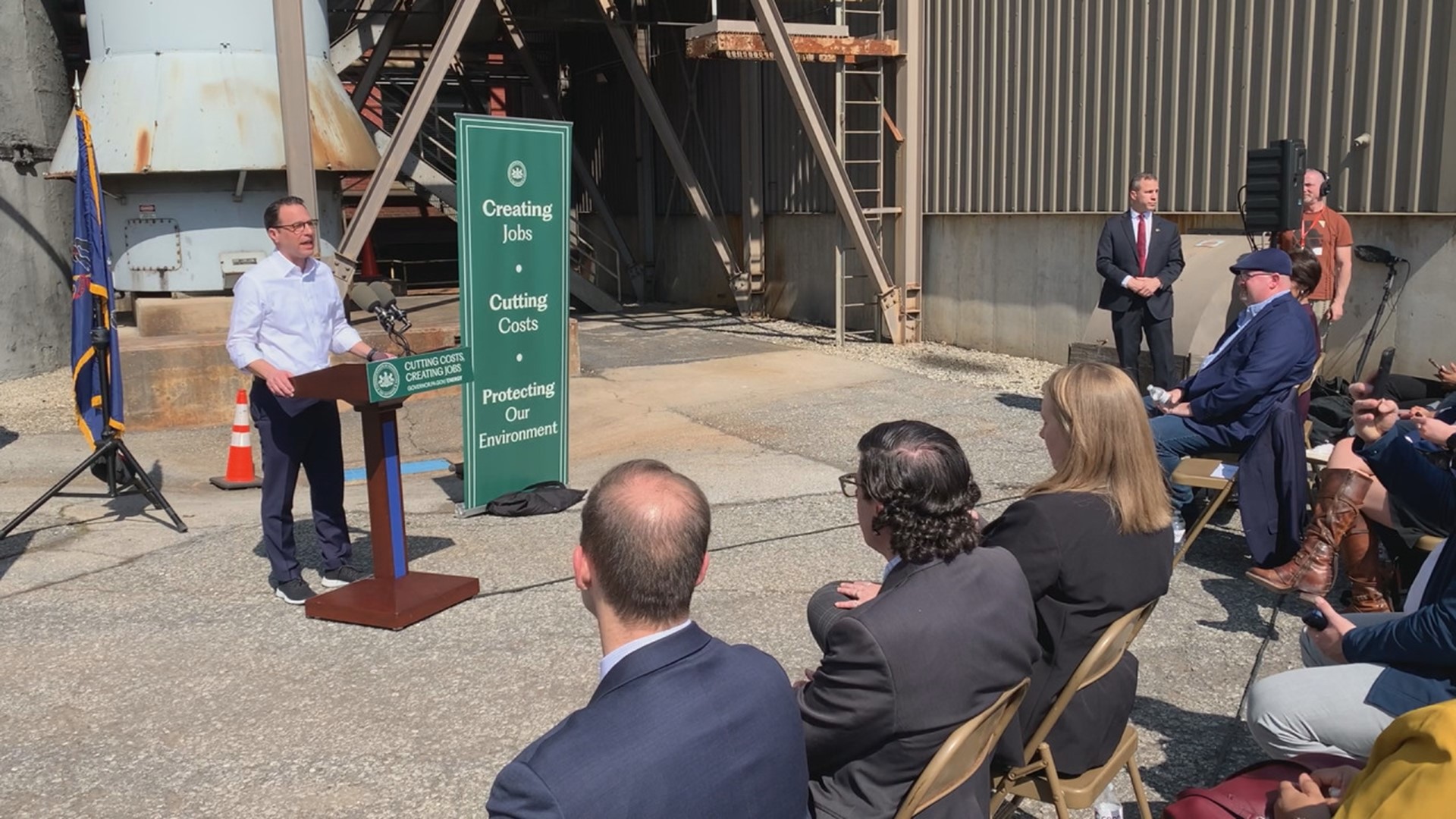HARRISBURG, Pa. — Governor Josh Shapiro joined local leaders at the Cordia Energy plant in Harrisburg, as the administration touts its new energy initiative.
“If you want to reduce pollution, doing nothing is not an option," said Governor Shapiro.
The new Shapiro Energy Plan contains two pieces of legislation: the Pennsylvania Climate Emissions Reduction Act (PACER) and the Pennsylvania Reliable Energy Sustainability Standard Act (PRESS).
The plan would create a cap-and-invest program, which promises to cut electricity bills while further investing in clean energy sources. It would require 50% of Pennsylvania's electricity to come from a combination of clean, sustainable, and ultra-low emission sources by 2035.
“So, not only will it be solar and wind anymore, but it’s also going to be methane digesters, new fusion technology, small modular nuclear reactors," said Governor Shapiro.
The Shapiro administration said its plan would save consumers $252 million in electricity costs in the first five years while investing $5.1 billion in clean energy resources.
Republican State Senator Scott Martin released a statement criticizing the proposal, saying it bears many similarities to the Regional Greenhouse Gas Initiative (RGGI), which is tied up in the state court system.
“For us to count today’s announcement as any kind of progress, Governor Shapiro needs to withdraw his appeal to the Commonwealth Court’s decision that RGGI is unconstitutional," said Senator Martin (R-Lancaster).
Republican State Representative Josh Kail argued that the plan would harm consumers and manufacturers by not taking advantage of Pennsylvania’s natural gas.
“This proposal does not leverage that," said Rep. Kail (R-Beaver). "What it does is put a green tariff on the cleanest manufactures in the world. What they really do is drive demand for Chinese-produced energy.”
When asked to comment about GOP criticism of his plan, Governor Shapiro said he would take Pennsylvania out of the Regional Greenhouse Gas Initiative, if his energy plan passes. He added that taking action would also help Pennsylvania be more competitive with its neighbors.
“If you choose to do nothing, you are making it harder on Pennsylvanians," said Shapiro.

